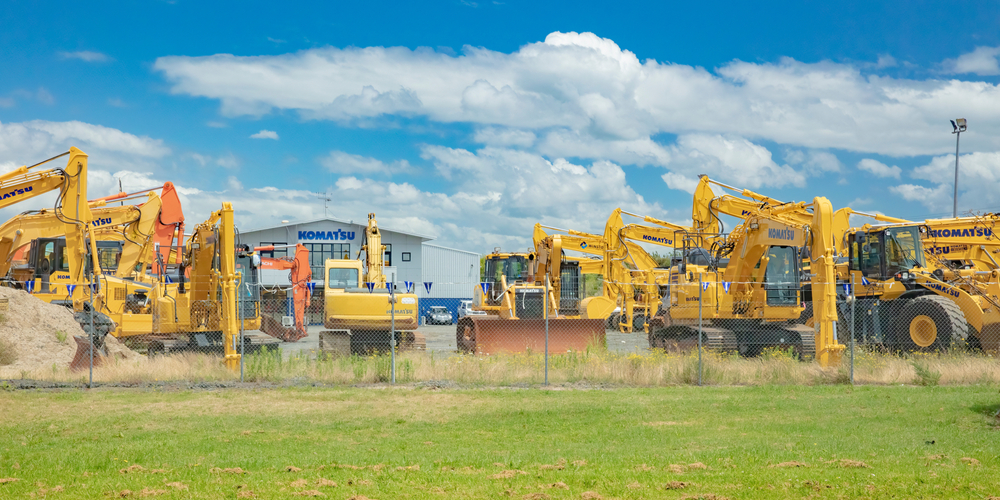Selecting the right heavy equipment suppliers is a crucial decision for any business owner in the construction industry. It is about establishing a reliable partnership that profoundly impacts the efficiency and success of your projects. Quality heavy equipment is pivotal in meeting project timelines, enhancing operational efficiency, and ensuring the overall success of your construction endeavors.
This guide is designed to help business owners understand the vital factors in choosing heavy equipment suppliers. Aligning with a supplier that resonates with your business needs and values is about setting a foundation for sustained success and growth in the construction sector.
Understanding Your Business Needs
The construction industry’s diversity necessitates a varied fleet of heavy equipment, each tailored for specific tasks. To align your equipment needs with your project requirements, a comprehensive analysis of your projects is crucial. Here are key factors to consider:
1. Project Size and Scope
Evaluate the magnitude and complexity of your projects. Larger projects might require heavy-duty equipment like excavators and cranes, while smaller ones may be more suited to mini-excavators and backhoes.
2. Terrain Considerations
Assess the terrain where the project is located. Different terrains require specialized equipment for optimal efficiency and safety.
3. Specific Tasks and Requirements
Identify the specific tasks involved in your projects. Choose equipment that is best suited for these tasks to enhance productivity.
4. Equipment Quantity and Type
Determine the right quantity and type of equipment needed to avoid overspending or under-resourcing. Over-investing leads to increased capital and maintenance costs, while underestimating can cause project delays.
5. Consultation with Experts
Engage with project managers and site engineers for insights on equipment needs across different project phases. Their expertise can help refine your equipment choices to match your project requirements closely.
Evaluate the Reputation of your Heavy Equipment Supplier
The reputation of your heavy equipment supplier is a vital aspect of your decision-making process. Working with a reputable supplier ensures reliability, quality, and value in your equipment procurement.
To assess a supplier’s reputation, start by examining customer reviews and testimonials. These firsthand accounts offer insights into the supplier’s reliability and service quality.
Another key criterion is the supplier’s industry certifications. Certifications from recognized industry bodies signify a commitment to quality standards and regulatory compliance. Also, consider the supplier’s longevity in the market. Suppliers with a long-standing presence typically have a proven track record and a depth of experience in the industry.
References and case studies are invaluable in evaluating a supplier’s performance on previous projects. They provide tangible evidence of the supplier’s ability to meet client expectations and deliver on promises. Request case studies that are relevant to your project type and size for a more accurate assessment of the supplier’s capabilities.
Quality of Equipment
The quality of heavy equipment is non-negotiable, as it directly impacts safety, reliability, and the success of your projects. Assessing equipment quality involves several steps.
First, examine the technical specifications of the equipment. Ensure they match your project requirements and industry standards. Conduct on-site inspections to check the equipment’s condition, especially if considering used or refurbished machinery.
Understanding the warranty and maintenance terms is also crucial. A good warranty indicates the manufacturer’s confidence in their product, while comprehensive maintenance services suggest a commitment to long-term equipment performance.
Check for clear communication regarding these terms to avoid unexpected costs or downtime.
Range of Products and Services
Choosing suppliers with a comprehensive range of products and services can be highly beneficial.
A one-stop-shop approach simplifies the procurement process, saving time and reducing logistical complexities. This convenience is particularly valuable in large-scale or multifaceted construction projects where multiple types of equipment are required.
A supplier offering a broad range of products and services can also provide more integrated solutions, ensuring compatibility and efficiency across various equipment types.
Additionally, dealing with a single supplier for multiple needs can strengthen your bargaining position and may lead to better pricing and service terms.
Pricing and Cost Transparency
Transparent pricing structures are a critical aspect of selecting heavy equipment suppliers. To navigate through pricing effectively, it’s important to understand various factors that influence equipment costs. Here are key points to consider:
Factors Influencing Equipment Costs
- Brand: Recognized brands may command higher prices due to their reputation for quality and reliability.
- Age of Equipment: Newer models are typically more expensive than older ones.
- Specifications: Equipment with advanced features or superior performance capabilities can be more costly.
- Service and Maintenance Terms: Packages including comprehensive service and maintenance can affect the overall price.
Negotiating Deals
- Aim for favorable terms while being mindful of the quality.
- Negotiate for value, not just the lowest price, to ensure you’re getting the best return on investment.
Red Flags in Pricing
- Beware of prices that seem unusually low, as they may indicate compromised quality or hidden costs.
- Always ask for a detailed cost breakdown to understand what you’re paying for.
Asking Questions and Clarifying Charges
- Don’t hesitate to ask for clarification on any aspect of the pricing.
- Understanding all charges upfront helps avoid surprises later.
Long-Term Cost Savings
- Investing in high-quality equipment with transparent pricing can lead to long-term savings by reducing the need for frequent repairs and downtime.
Customer Support and Service
Effective customer support and service are fundamental to a successful partnership with your heavy equipment supplier, especially when addressing machinery breakdowns or operational issues. Here are key aspects to consider:
After-Sales Service Commitment
- Availability for maintenance, repairs, and troubleshooting.
- A dedicated support team ensures professional assistance is always within reach.
Response Time and Spare Parts Availability
- Assess the supplier’s ability to respond promptly to service requests.
- Availability of spare parts is crucial to minimize downtime during equipment failures.
Training and Technical Expertise
- Evaluate the extent of training and technical support offered by the supplier.
- Comprehensive training enhances on-site safety and operational efficiency.
Long-Term Customer Satisfaction and Equipment Performance
- A supplier invested in your team’s knowledge and skills demonstrates a commitment to long-term satisfaction and optimal equipment performance.
Sustainability and Environmental Considerations
In the construction industry, sustainability is not just a trend but a responsibility. Selecting suppliers who prioritize eco-friendly practices is vital. Key factors include:
Energy-Efficient Equipment Options
- Choose suppliers offering equipment that minimizes environmental impact and reduces fuel consumption.
Supplier’s Environmental Policies
- Assess the supplier’s commitment to responsible manufacturing processes.
- Options for recycling or responsible disposal of old equipment indicate a sustainable approach.
Enhancing Company Reputation Through Sustainability
- Partnering with environmentally conscious suppliers can improve your company’s public image.
- This commitment is often valued by clients and partners, especially those prioritizing environmental responsibility.
Conclusion
Selecting the right heavy equipment suppliers is a critical decision that significantly impacts the success of your construction projects.
In this critical decision-making process, it’s important to view your supplier not just as a vendor, but as a strategic partner. This perspective fosters a relationship based on mutual growth, understanding, and long-term commitment, ensuring better support and service for your projects.
Opting for a supplier who stays at the forefront of these changes can help keep your business competitive and adaptable. Moreover, a reliable supplier plays a significant role in risk management.
We encourage business owners to carefully evaluate their options, considering these factors to make informed decisions that will enhance their construction endeavors. At ESP (Equipment Spare Parts), we are dedicated to providing comprehensive solutions that cater to these diverse needs, and we invite you to explore how our offerings can support the growth and success of your business.









